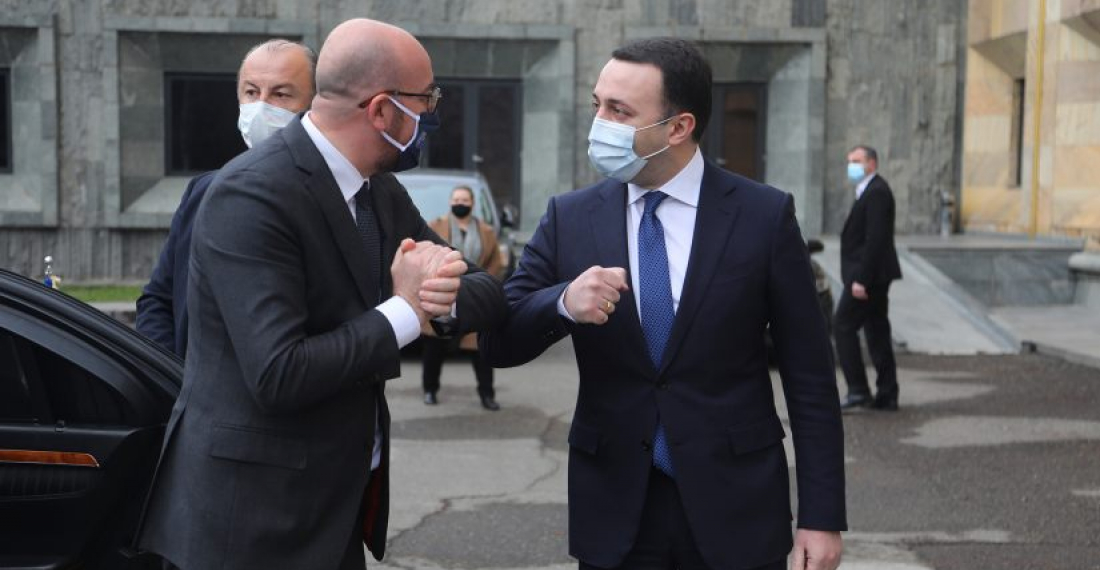Charles Michel, the President of the European Council, has called for an end to the political crisis in Georgia during a press conference with the country’s president, Salome Zurabishvili. He referred to the crisis as “of great concern to the European Union”, asking all parties to “step up their efforts to de-escalate the situation and come together to find common ground”.
Opposition supporters marched in Tbilisi last week, protesting the arrest of the leader of the largest opposition party, the United National Movement’s Nika Melia. The authorities have charged Melia with instigating violence at protests in 2019; however, his supporters claim that the charges are politically motivated. Opposition politicians continue to boycott parliament and call for fresh elections, disputing the legitimacy of the parliamentary elections in October that were won by the Georgian Dream party.
During the press conference, Michel expressed an understanding of the difficulties that the crisis presents, but faith that the country was capable of finding a solution:
“I realise that political debate within a democratic framework requires leadership as well as courage on the part of all parties involved in the political debate. I am convinced that Georgia has the assets to overcome the current challenges and to consolidate the foundations of its democracy.”
The President of the European Council also met with the new Georgian prime minister, Irakli Garibashvili (pictured), and stated his intention to speak with both the opposition leaders and the speaker of the Georgian parliament.
Held very meaningful discussions w/ @CharlesMichel. The visit is a clear reiteration that our region has a strategic importance for the 🇪🇺. Focused on wide range of issues incl. occupation & global pandemic. 🇬🇪's grateful for the support & truly appreciates the partnership!
— Irakli Garibashvili (@GharibashviliGe) March 1, 2021
Michel is in Georgia this week as part of a trip which includes Moldova and Ukraine, to show the EU’s commitment to the states of its Eastern Partnership initiative. In his statement, Michel expressed the EU's support for Georgian sovereignty and territorial integrity in respect of its separatist territories, Abkhazia and South Ossetia, referring to the bloc as being “firmly on [Georgia’s] side”. Whilst in Georgia, Michel visited the Administrative Boundary Line in the village of Khurvaleti in Georgia's Tskhinvali region (South Ossetia).
A village divided in two by barbed wire.
— Charles Michel (@eucopresident) March 1, 2021
The Administrative Boundary Lines is still a harsh reality for citizens following the 2008 war.
This needs to change.
EU 🇪🇺 supports Georgia’s 🇬🇪 sovereignty and territorial integrity @EUMMGeorgia pic.twitter.com/pOsiifMXPO
Tomorrow (2 March), the President of the European Council will visit Ukraine.







